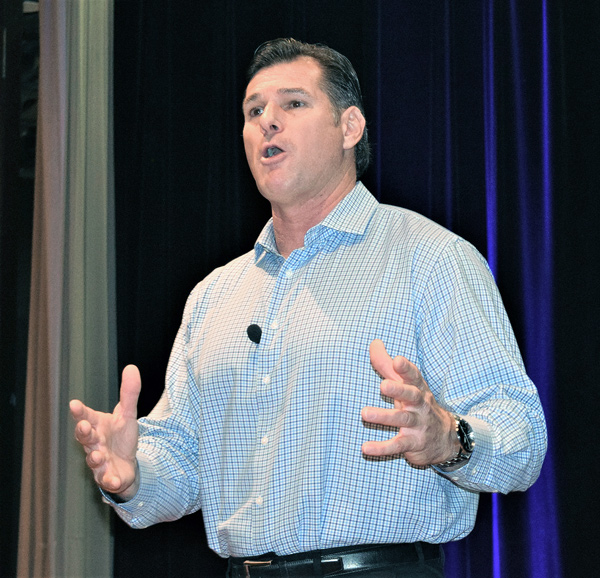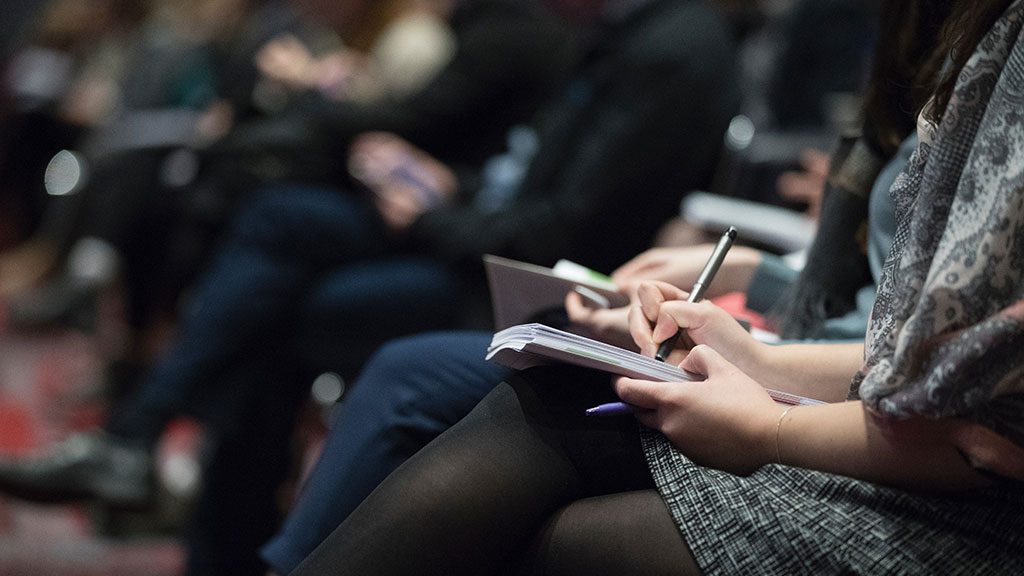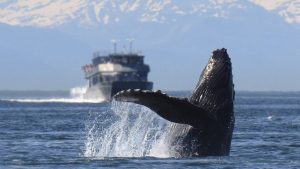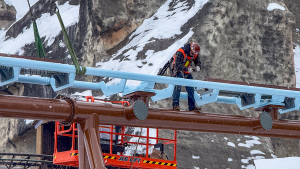Former construction worker and Olympian Cliff Meidl, survivor of a horrific workplace injury, delivered a powerful message of inspiration to delegates attending the Ontario Regional Common Ground Alliance (ORCGA) Damage Prevention Symposium in Niagara Falls, Ont. recently.
In 1986 Meidl, working at a Los Angeles-area jobsite, jackhammered into three live 4,160-volt underground powerlines and immediately blacked out, his life initially in jeopardy. A decision to amputate both legs, burned thoroughly from within, was reconsidered. With experimental surgery and then relentless discipline through years of rehabilitation, Meidl not only learned to walk again but got into kayaking and eventually made the U.S. Olympic team.

Today he is a project consultant and construction executive, an inspirational speaker on workplace safety and an ambassador for safe digging practices with DigAlert and the Contact 811 Before You Dig movement in the U.S.
In his hour-long keynote address at the ORCGA event Feb. 14, Meidl, 53, preached teamwork, perseverance, promotion of a safe workplace culture and the belief that miracles can happen.
“My mother and father went through a lot from the emotional standpoint and I went through the physical trauma, so I really try to tap into the audience and talk about how important family and our immediate culture is,” Meidl said in an interview after his luncheon address.
“We are all so busy but that culture is an important part of who we are today. It builds our character, it is a big part of the growth process, especially the young people who are getting into the trades. Having that safety culture and having that culture of excellence is critical as employees.”
Meidl paid frequent tribute to the roles his family members played as he recovered, particularly his mother, who refused to accept the advice of doctors that her son have both legs amputated and instead tracked down Dr. Malcolm Lesavoy, a UCLA reconstructive plastic surgeon.
Lesavoy saved Meidl’s legs with a rarely used transplant procedure that rebuilt his knees by grafting muscle tissue flapped up from his calves.
His mother had earlier whispered words to inspire him as he lay in his hospital bed, finally conscious 16 hours after the digging mishap had “lit him up like a Christmas tree,” Meidl told the delegates.
The surging electricity had shot up through his body, exiting the back of his skull.
His heart had stopped twice on the way to the hospital.
The trauma team told his mother she could not go into the critical care unit but “you can’t tell a mother no,” he said, and so his mother barged into the room, went to his side and told him, “Fight as hard as you can. Fight to live.”
After years of learning to walk again, his arms and shoulders became powerfully muscled, and his brother suggested he join an Outrigger canoe and kayak team.
The results are the stuff of TSN-style sports film legend — Meidl built himself into a nationally ranked kayaker and, 10 years after his tragedy, he became an Olympian, competing first in the 1996 Atlanta Olympic Games and then carrying the flag for his country at the opening ceremonies of the 2000 Sydney Olympic Games.
The ORCGA speech, reciting his against-all-odds experiences, earned him a standing ovation from the delegates.
Meidl said he especially likes it when he can address the trades workers who are at the heart of the construction sector, given that he knows the business from both sides.
He said there are practical steps that can be taken, with protective equipment and protocols and daily meetings, but also a team culture must by instilled.
“When I am in the field I like boots on the ground, those are some of the favourite audiences I try to speak with,” Meidl said.
“Those guys are working in the field, and when you talk to them, it’s important to stress it is the people that they’re working with. It is not only their co-workers, it is their buddies, there is a huge dependence on one another in order to be safe on a daily basis. It is the individual accountability and it is also the team accountability and you don’t want that to fail.”
At the managerial level, that accountability involves creating trust with employees.
“I try to inspire them to go back and say, ‘what’s your biggest asset?’ It’s employees, family, it is their job at that standpoint to step down and inspire trust and to be able to get those people to believe in the process, and that’s why it’s so important for the executives to know that, top-down, bottom-up analysis. We all have to be in this together,” said Meidl.
“There is nobody that is more important than anybody else. The people doing the infrastructure are no more important than the people analyzing financial statements. We have different jobs but we’re all on the same team.”








Recent Comments
comments for this post are closed